There is a sea of information from everyone and everywhere in terms of what to eat, and what not to eat. Friends and family, social media, documentaries, journals, newspaper articles…and the list goes on. As a society we have been wired to think about the food we are eating all the time. This may be because of body image, specific health purposes, or for general health. Nevertheless, we all know it is important to eat well. This means eating in moderation, but making sure to include the important food groups your body needs to function optimally and thrive! According to the second guideline from the Australia Guide to Healthy Eating, it recommends that we enjoy a wide variety of nutritious foods from the five groups every day.
The five main food groups classified by the Australian Guide to Healthy Eating are:
- Vegetables and legumes/beans
- Fruit
- Grain (cereal) foods, mostly wholegrain and/or high cereal fibre varieties
- Lean meats and poultry, fish, eggs, tofu, nuts and seeds and legumes/beans
- Milk,yogurt,cheese and/or alternatives, mostly reduced fat
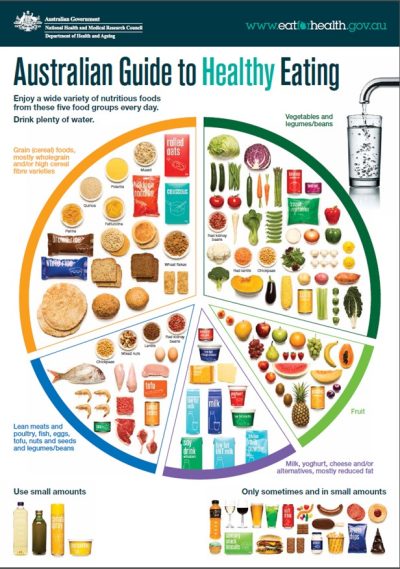
Top 5 brain boosting foods
Eating a balanced diet is always important. Interestingly, there are some foods that are proven to also have extra benefits – for your memory, focus and overall brain health (brain food!).
1. Açaí
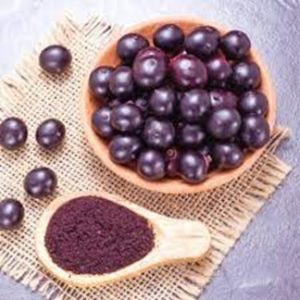
The first brain food on the list is Açaí. Açaí is prized for thousands of years in countries such as Brazil. This Amazonian berry has received great acclaim in recent years…and for good reason. It has fantastic health benefits especially for the brain. Açaí berries are technically not actually berries – they contain pits like olives and peaches, and so are classified in the family of drupes – but they are more commonly referred to as berries.
Research Published in nutrional neuroscience shows that Açaí has the potential to protect our brain as we age, and to protect our brain from excessive inflammation which is a grave issue that a lot of people deal with in modern society. Researchers from the Albert Einstein College of medicine have recently affirmed that neuroinflammation in the human brain (which helps to regulate our metabolism) leads to excessive stomach fat and insulin resistance.
Part of the reason why Açaí has been found to be so beneficial for brain health is because of its concentration of diverse antioxidants. Açaí is one of the most antioxidant rich foods ever discovered!
Açaí bowls
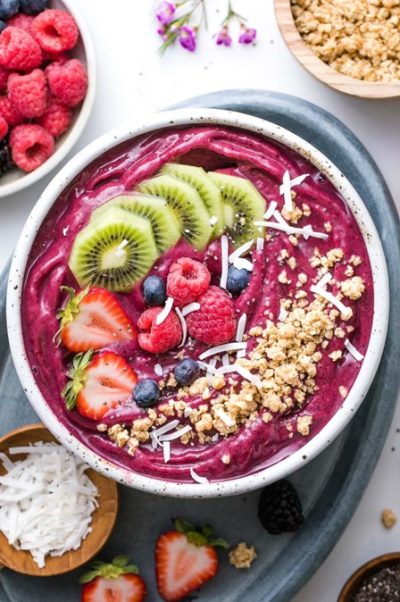
Açaí bowls are one of the conventional ways that Açaí is being utilized and it is becoming popularized very rapidly. But, what people often don’t realize is that many of the benefits that can be extracted from Açaí are being ‘canceled out’ due to the processed sugar that is being added to the Açaí, along with the toppings.
So ideally, we would start to utilize Açaí, but in a more intelligent fashion. How to do so? Açaí can be bought in the form of the pulp; either sweetened or unsweetened. Buying the non-sweetened Açaí pulp means you can regulate how much sweetener you put into it (such as honey – a healthier alternative to processed sugar).
2. Seafood
Many observational studies show that people who eat more fish have slower rates of mental decline. Studies also reveal that people who eat fish every week have more grey matter (your brain’s major functional tissue)in the parts of the brain that regulate emotion and memory. The high content of omega 3 fatty acids that is found in seafood increases learning, memory, cognitive well-being and blood flow in the brain.
Specific seafoods with really high contents of omega 3 include:
- Salmon
- Oysters
- Sardines
- Anchovies
- Mackerel
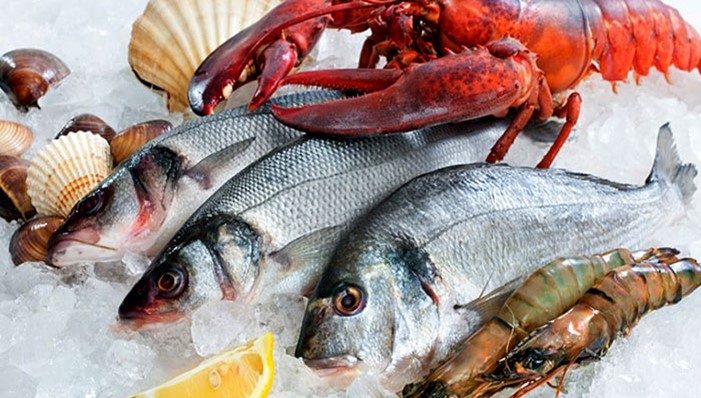
A few seafood recipes are linked below:
Salmon Bowl

Tomato and anchovy risotto

3. Coffee
Many of us Melbournians love our coffee, and we are aware that coffee can improve mental performance, but few people know that regularly drinking coffee has been shown to prevent cognitive decline and reduce the risk of developing Alzheimer’s and Parkinson’s. This attribute, which is referenced in the journal ‘practical neurology’ is why smart coffee consumption makes the list of foods (or drink) that boost your brain health.
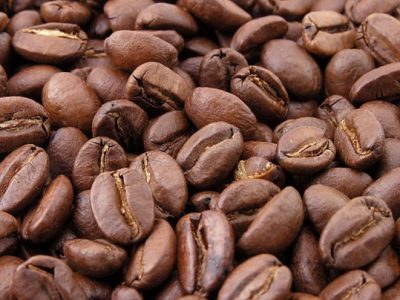
The main problem
While the coffee beans are beneficial, a lot can be added to coffee (processed sugars, toppings, creamers) that can diminish the health benefits of coffee. Another problem is the overconsumption of coffee and relying it for energy in the morning, or for a late night cramming session. This can also rid coffee of its benefits. Essentially, the health benefits of coffee beans are extremely unique, and smart coffee consumption can help us to gain these benefits.
Smart coffee consumption
The journal psycho pharmacology uncovers that drinking 1 large cup of coffee a day (200mg of caffeine) or 4 small cups (65mg of caffeine each) had remarkable benefits for mental performance – alertness, reaction times and enhanced performance on cognitive vigilance, multi-tasking and deep concentration tasks.

4. Cinnamon
The journal psycho pharmacology uncovers that drinking 1 large cup of coffee a day (200mg of caffeine) or 4 small cups (65mg of caffeine each) had remarkable benefits for mental performance – alertness, reaction times and enhanced performance on cognitive vigilance, multi-tasking and deep concentration tasks.
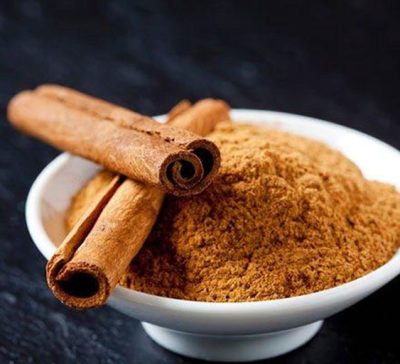
One of the greatest things about cinnamon is that it can be utilized in both sweet and savory dishes and beverages! Since it’s a spice, it is quite easy to find ways to incorporate into our diet. Below are some cinnamon incorporated recipes:
Spiced chicken and rice with apples and raisins
Apple Cinnamon oatmeal cookies
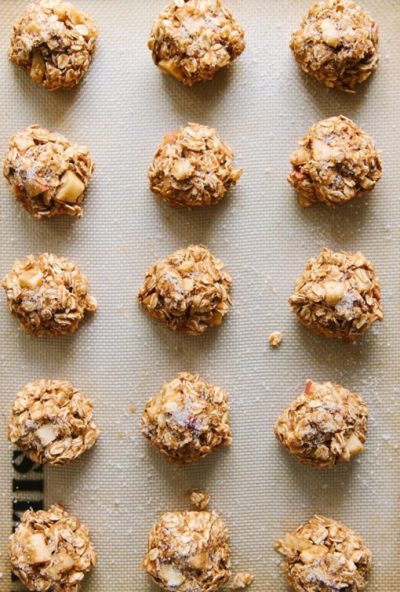
Hot chocolate with cinnamon

5. Eggs
Whether your preference is scrambled, poached, sunny side up…eggs are an amazing addition to your health.
Egg yolks crack a big nutritional punch – they are power packed with choline. Choline is one of the most important things in developing your life long memory capabilities. Research at the university of north Carolina indicates that your memory characteristics are heavily correlated to how much choline your mother ate during lactation and pregnancy. Choline helps to reduce inflammation and boosts communications between brain cells. Eggs also contain vitamin D, Omega 3 and phospholipids, all of which boost brain health.
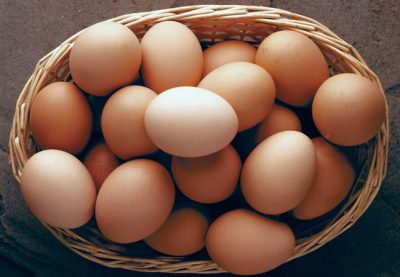
But eggs are a tricky food
Eggs have stirred up a lot of questions – one thing about eggs is that they have a lot of cholesterol – a type of fat. Some people may develop diseases if they have too much cholesterol in their diets. However, most people can eat some eggs without anything bad happening to their health. So again. Eggs are beneficial – when eaten in moderation.
But the most important question – how do you like your eggs?
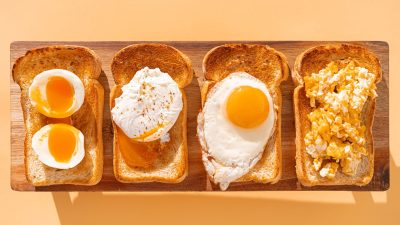
These are some of the most brain boosting foods – they come with their many remarkable benefits. Overall, it is essential we maintain a balance diet, but still eat what makes us happy. Not to sound like a broken record, but even the most brain boosting foods need to be enjoyed in moderation. But these are all very great additions to add to the diet that can help assist not just your brain, but also your general health!
